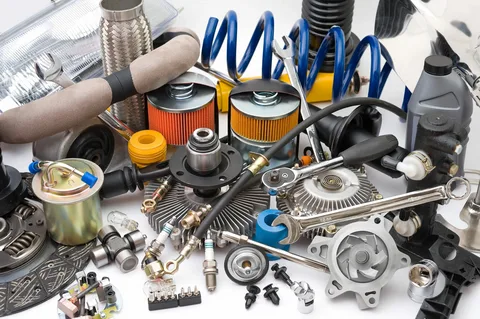Picking a suitable commercial truck for your needs is fundamental to progress in today’s speedy business climate. Pursuing the ideal decision may be troublesome when there are countless choices from here on out. In the business truck market, Ashok Leyland Trucks and Tata Trucks are two notable opponents. We’ll go into the elements to consider while picking between these brands here to make sure you settle on the best decision for your organisation.
Understanding Your Business Requirements:
Before jumping into specific truck models, it’s fundamental to understand your business requirements completely. Consider factors such as, for example, the idea of your freight, the distance and territory of your routes, the payload limit, eco-friendliness, upkeep costs, and any unique elements expected for your tasks.
Comparing Tata Trucks and Ashok Leyland Trucks:
-
Performance and Reliability:
Tata Trucks: Known for their powerful exhibition and dependability, Tata Truck models worked to deal with different territories and weighty burdens. With advanced technology and sturdy parts, they offer fantastic eco-friendliness and low upkeep costs.
Ashok Leyland Trucks: Similarly eminent for their performance and dependability, Ashok Leyland Trucks are intended to convey steady performance even in testing conditions. With an emphasis on development and designing greatness, they offer predominant power and productivity.
-
Payload Limit:
Tata Trucks: Tata offers many trucks with changing payload abilities to suit different business needs. Whether you require light, medium, or heavy-duty trucks, Tata has choices to accommodate diverse freight necessities.
Ashok Leyland Trucks: Comparably, Ashok Leyland Trucks come in different setups with competitive payload limits. From small delivery trucks to huge hauliers, they offer flexibility to fulfil the needs of various ventures.
-
Eco-friendliness:
Tata Trucks: Tata focuses on eco-friendliness in its truck designs, consolidating progress in motor innovation and streamlined features to improve fuel utilisation. These outcomes in cost reserve funds over the long haul make Tata Trucks an economical decision for organisations.
Ashok Leyland Trucks: Ashok Leyland additionally underscores eco-friendliness in its truck models, using innovative motor plans and fuel management systems to boost mileage. By decreasing fuel costs, Ashok Leyland Truck models add further development benefits for organisations.
-
Maintenance and After-Sales Support:
Tata Trucks: Tata has a broad organisation of service centres and approved showrooms, guaranteeing brief upkeep and reliable after-deal support for its clients. This organisation improves on adjusting and fixing, limiting personal time for organisations.
Ashok Leyland Trucks: Comparably, Ashok Leyland keeps a robust help organisation to take special care of the necessities of its clients effectively. With prepared experts and promptly accessible extra parts, Ashok Leyland Trucks guarantees minimal interruptions to business tasks because of maintenance issues.
-
Cost Considerations:
Tata Trucks: While Tata Trucks offers competitive pricing, it’s fundamental to consider the general expense of ownership, including support, fuel, insurance, and support. By assessing these variables comprehensively, organisations can make the most practical choice.
Ashok Leyland Trucks: Likewise, Ashok Leyland Trucks offers some benefits for money with their presentation, quality, and effectiveness. By evaluating the absolute expense of proprietorship, organisations can make informed choices aligned with their monetary requirements.
What are the applications that are mostly used by commercial trucks?
1. Construction & Infrastructure:
Commercial trucks are fundamental for the construction business, moving materials like sand, rock, concrete, steel, and large equipment to building locales. They likewise assume an essential role in waste removal and destruction projects.
2. Farming:
In horticulture, business trucks are utilised for shipping crops, domesticated animals, hardware, and rural data sources like manures and pesticides. They empower ranchers to move their items to business sectors or handle offices productively.
3. Refrigerated Transport:
Refrigerated trucks, otherwise called “reefer trucks,” are specific business vehicles that come with refrigeration units. They help with shipping transient merchandise, for example, food and drugs that require temperature-controlled conditions to keep up with newness and quality.
4. Oil and Fuel Transport:
Commercial trucks help with shipping oil-based goods, including gas, diesel, stream fuel, and other fluid fills. They assume a basic role in conveying fuel, from processing plants to circulation centres, corner stores, air terminals, and modern offices.
5. Moving and Logistics:
Commercial trucks are, in many cases, utilised by moving organisations and strategy suppliers to ship family goods, furniture, appliances, and other things during private or business migrations. They offer the fundamental space and capacity to move enormous volumes of freight productively.
6. Waste Management:
Dump trucks, otherwise called refuse trucks or waste collection vehicles, are particular business trucks utilised for gathering and moving strong waste and recyclable materials from private, business, and modern areas to removal locales or reusing offices.
7. Emergency Response:
Specific sorts of commercial trucks, for example, fire engines, ambulances, and rescue vehicles, are fundamental for crisis response and disaster relief efforts. They come with specific gear and staff to give basic help during crises and natural disasters.
Conclusion:
Picking the right commercial truck for your business needs includes a thorough assessment of different variables, including performance, quality, payload limit, eco-friendliness, upkeep, and cost considerations. Both TATA Trucks and Ashok Leyland Trucks offer competitive solutions customised to various necessities. By assessing these variables cautiously and adjusting them to your business needs, you can make a well-informed choice that upgrades functional productivity and drives benefit.











